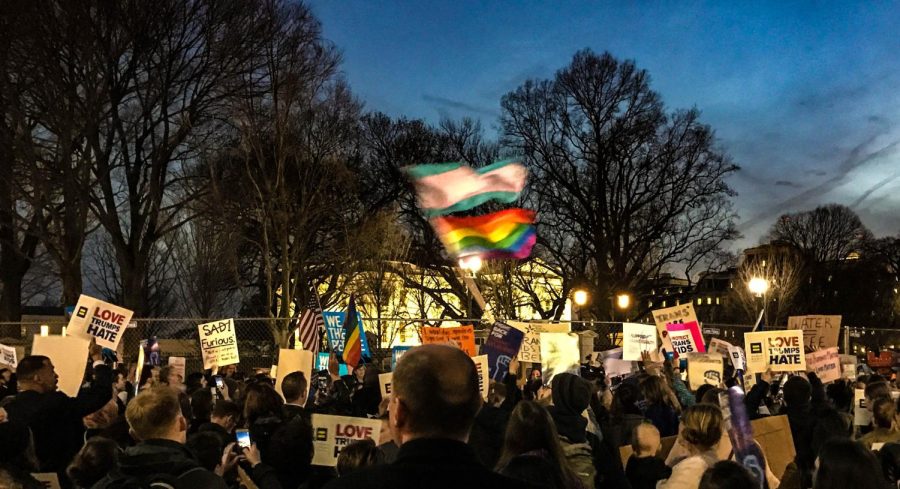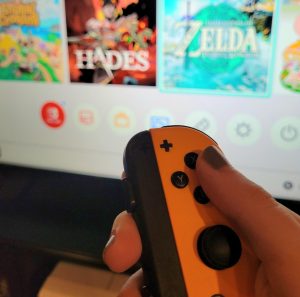Don’t Say…
Florida sparks controversy, senate accused of anti-LGBTQ+ bill
February 28, 2022
48%. Almost half of LGBTQ+ teens who responded to a 2021 survey said while they wanted mental healthcare, they didn’t receive it. Now, advocates like Pete and Chasten Buttigieg are calling out legislators in Florida for further suppressing LGBTQ+ students’ abilities to receive help from their school.
On July 1, the House Bill 1577, known by critics as the “Don’t Say Gay” bill will go into effect. Florida’s governor Republican Ron DeSantis voiced support for the bill Feb. 7 saying, “parents must have a seat at the table when it comes to what’s going on in their schools.”
In order to promote a school system with more involved parents, the bill prohibits schools from withholding documents regarding a students’ change in mental, emotional or physical well-being from guardians, and encourages students to discuss personal matters with them.
Furthermore, school districts are to, “not encourage classroom discussion about sexual orientation or gender identity in primary grade levels in a manner that is not age or developmentally appropriate for students.”
Though Floridian primary grade levels are firmly defined to be K-12, the bill doesn’t explicitly express what constitutes “age-appropriate or developmentally appropriate” material in the legislators’ eyes.
CNN writer Joe Saunders commented on the bill in his own article, stating, “The [bill’s] language could be used to prohibit open discussions of LGBTQ people and issues.” The anti-bill sentiment has been echoed by people like Jon Maurer, a member of the LGBTQ+ civil rights group Equality Florida, and even Kerry Washington.
Meanwhile, the bill has garnered just as much laudation as it has backlash. Nonetheless, proponents of the bill and its sponsors, Representative Joe Harding and Dennis Baxley, have said they’re open to alterations, as long as adversaries are more transparent.
“I want them to go on record to say it’s okay for a six-year-old to have one identity in school and one at home,” Harding said. “The school encourages that behavior.”
Aside from Florida’s governor and the bill’s sponsor, several major companies have donated to legislators backing the bill. Comcast, AT&T and Walgreens have each donated over $25,000 to the bill’s supporters since 2020.
Despite Florida garnering the most attention thus far, many other states have instituted bills affecting classroom conversations about sexual orientation and gender. Eight other states cumulatively have 15 bills under consideration that would suppress LGBTQ discussions in schools.
“What we’re seeing here is anti-LGBTQ groups, on a national level, making schools the new battleground across the board,” GLAAD rapid response manager, Mary Emily O’Hara, said. “Schools are the target right now for the anti-LGBTQ movement.”








